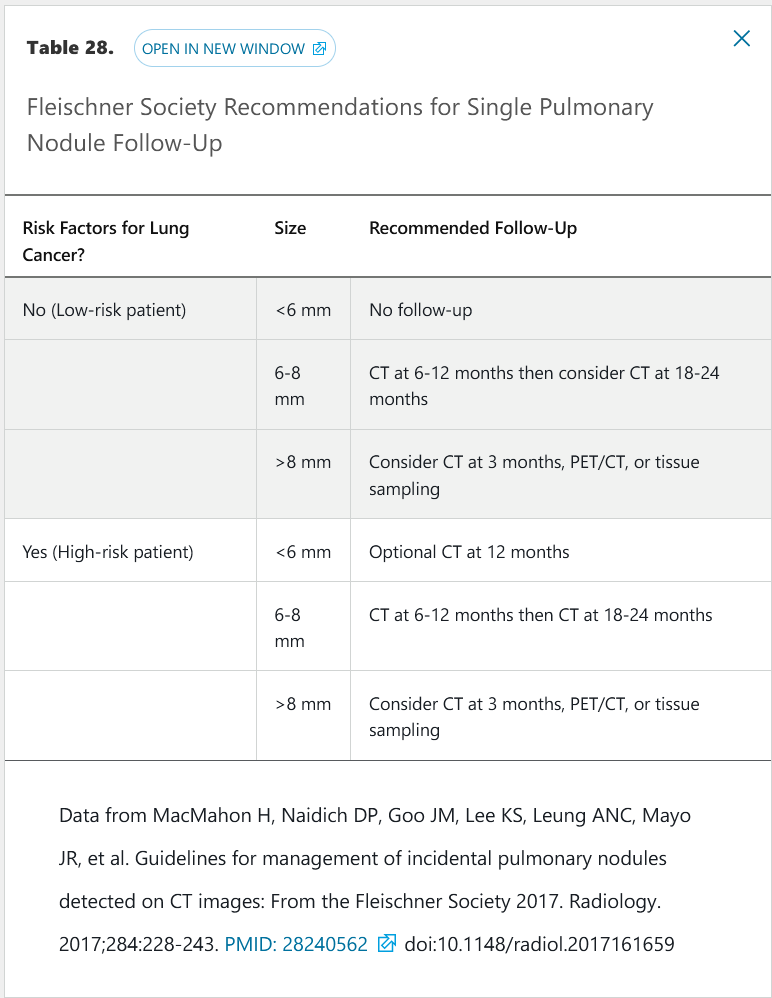-
Pulmonology
Pulmonology
MKSAP
Normal
Obstructive Lung Disease
-
Lung Nodules
Lung nodules
-
related: Pulmonology, lung cancers
-
features:
- Rounded opacity
- ≤3 cm in diameter (>3 cm is considered a "mass" and malignant until proven not)
- Surrounded by pulmonary parenchyma
- No associated lymph node enlargement, not associated with atelectasis, hilar enlargement, pleural effusion
Solid Nodule > 8 mm

- low/moderate probability: PET scan
- PET neg: continued
-